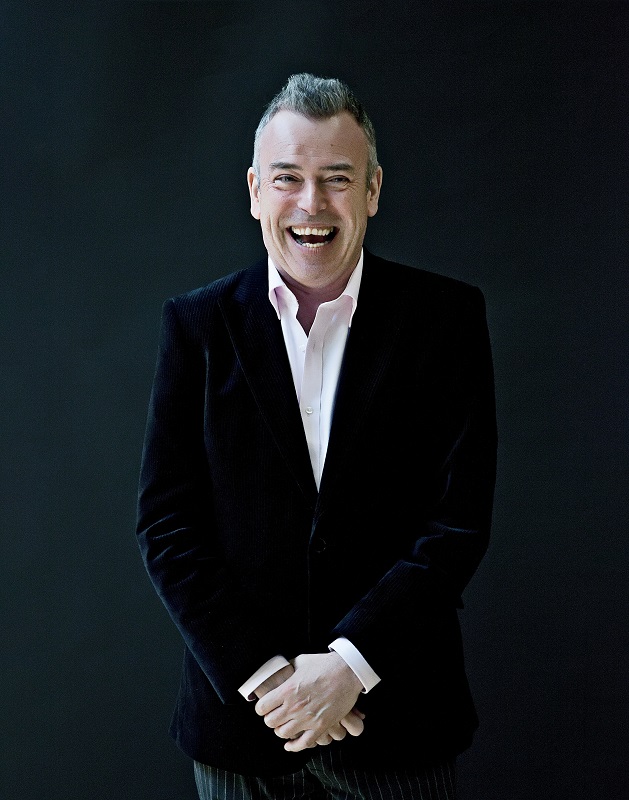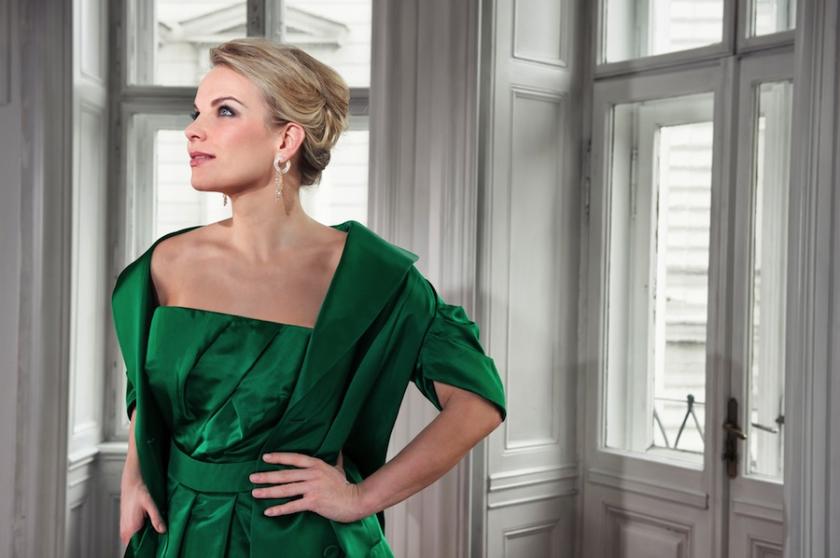It seems an almost indecent luxury to have heard two top mezzos in just over a week with so much to express, backed up by the perfect technique and instrument with which to do so. Georgian Anita Rachvelishvili with Pappano and the Royal Opera Orchestra the Friday before last only had to hold the spell through a Rachmaninov sequence in the middle of an all-Russian concert.
The voice is now fuller, richer than it was before, sounding as if it's heading towards the great Verdi roles, if less nimble than when she started out with perfectly decorated Rossini and some Baroque repertoire. With this amplitude of tone for rapture, it wasn't so easy for Garanča to negotiate the turns, or gruppetti, in two of the Schumann songs. Which is just about the only small criticism, because the way she produces that fullness and a whole range of still-exquisite colours can't be observed at work; it was - let's go the whole hog - as if a goddess in white had descended straight from Olympus.
 In Malcolm Martineau (pictured right by KK Dundas) she chose a pianist who didn't need to be discreet, but could be, when asked - the exquisite refrains between the vocal lines of Schumann's "Der Nussbaum" - and who very much worked with his singer to create the heart-in-mouth magic and the depths in the song at the centre of the Frauenliebe und -leben cycle, "Süsser Freund, du blickest mich verwundert an" ("Sweet friend, you look at me in wonder"). The full lower-register works were applied to the suffering in the final song - no little wifey, this, as it can seem when sung by a soprano - and Garanča's economical but spellbinding physical acting held an enigma through the piano postlude.
In Malcolm Martineau (pictured right by KK Dundas) she chose a pianist who didn't need to be discreet, but could be, when asked - the exquisite refrains between the vocal lines of Schumann's "Der Nussbaum" - and who very much worked with his singer to create the heart-in-mouth magic and the depths in the song at the centre of the Frauenliebe und -leben cycle, "Süsser Freund, du blickest mich verwundert an" ("Sweet friend, you look at me in wonder"). The full lower-register works were applied to the suffering in the final song - no little wifey, this, as it can seem when sung by a soprano - and Garanča's economical but spellbinding physical acting held an enigma through the piano postlude.
Wagner and his beloved Mathilde Wesendonck - let's do him credit, the surprising feminist composer of the Ring also set a woman's poetry - opened up to immortality here in the big salute at the end of "Stehe still" ("Stand still"), while the upper-register brilliance in "Schmerzen" was more exciting than that of many Wagnerian sopranos; could we eventually have an Isolde from Garanča? She scaled down beautifully, though, for the more intimate naiveties of the Ruckert Lieder, Martineau letting us realise how well a single line often keeps flowing tabs on the singer. If his tone could at times be more sheerly beautiful, he knows how to sustain and hover with the singer, which after another slice of Wagnerian opulence in "Um Mitternacht" ("At midnight) gave us a hyper-exquisite "Liebst du um Schönheit" ("If you love for beauty") enriched by hesitations and sudden warmings.
And "the most beautiful song in the world"? "Ich bin der Welt abhanden gekommen" ("I am lost to the world") needs absolute control as well as hallowed emotion, and it got it; the world of Lieder has nothing more transcendent to offer. The way Garanča slowly turned away during the piano's final laying to rest was as perfect as the rest. Even the hackers and coughers who had ruined the ends of several Schumann songs were silent here. "No silly encores after that," I eventually muttered to my neighbour, who had exactly the same thought; but the one Garanča did give was short and very sweet, as a kiss to the many Latvians in the audience: "Aizer actinas un smaidi!" ("Close your eyes and smile!") by Jāzeps Vītols, founder of the Latvian Music Academy where Garanča studied. Pure class.













Add comment